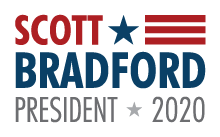[The Congress shall have Power] To promote the Progress of Science and useful Arts, by securing for limited Times to Authors and Inventors the exclusive Right to their respective Writings and Discoveries.
U.S. Constitution, Article I, Section 8, Clause 8
The federal government has the constitutional authority to establish intellectual property protections for authors (copyright) and inventors (patents). The stated purpose of this authority is to “promote the progress of science and useful arts.”
In the absence of copyright protections, writers and other creators would have little incentive (beyond their own personal drive) to create. The printing press, typewriters, copy machines, and now computers and the Internet all made it technically simple to make unauthorized copies of somebody else’s creations and sell them. Without copyright protections, doing so would be perfectly legal, and so it would be almost impossible to assure creators of getting paid for their creations.
Reduce the Length
But notice, too, that the founders said that these protections should only exist “for limited times.” They wanted to ensure that creators got paid, but they also wanted to make sure that, after a reasonable amount of time, their creations would still enter the public domain and become part of the free cultural milieu of our society…and creators would be encouraged to keep creating, rather than milking their old creations indefinitely.
Our first copyright law — the Copyright Act of 1790 — gave automatic copyright protection of only fourteen years, which could be renewed one time for another fourteen years. The maximum available protection was, therefore, twenty-eight years. Today, the default copyright is the lifetime of the author (however long it might be) plus twenty years. For works created by businesses, it’s 120 years…more than four times longer than the original maximum.
The driving force behind the increasing limits has been Disney, which spends a lot of money lobbying the government every time the original Mickey Mouse cartoons come close to running out of copyright protection. And Congress has pretty much given them everything they ask for.
We need to get back to the kind of balance that the founders envisioned, where the rights of creators to profit from their work is weighed against the cultural value of creative works entering the public domain. The limit should be lowered to no more than fifty years of copyright protection before works enter the public domain.
Restore “Fair Use”
Another aspect of copyright law that has been eroded in recent years is the concept of “fair use.” This concept is fairly nebulous, but, in short, it allows consumers to do some things that might otherwise be considered copyright violations.
For example, copyright means you can’t make copies of other peoples’ creations without permission. But a complete prohibition would be silly. What if you want to make a copy so you have a backup if your original is destroyed? What if you want to quote some excerpts in an article? What if you want to scan in a book so you can read it on your laptop? What if you want to copy a CD so you can listen to it on your phone?
The doctrine of “fair use” allows these things, as long as you are really only doing it for personal use and you’re not selling or distributing the copies. But the big businesses that control many of the creations these days — software, music, books, movies, etc. — keep trying to stop us from utilizing our “fair use” rights.
The main way they do this is with DRM, or “Digital Rights Management,” which is a blanket term for technical methods to prohibit users from copying creative works. Of course the hackers out there are always working to get around DRM, and more power to them. But a very poorly designed law — the Digital Millennium Copyright Act (DMCA) — badly undermined their efforts and consumer rights.
The DMCA, while it claims not to change “fair use” rights, prohibits efforts to work around DRM protections, and prohibits the distribution of tools that would help users free their purchased media from arbitrary limits. It also created a whole “takedown” regime where anybody posting anything copyrighted on YouTube and other sites faces a constant torrent of notices claiming violations, even when the use is obviously “fair use” (like incidental music in the background).
The DMCA needs to be repealed or, at least, significantly reformed. “Fair use” needs to be restored, and copyright owners should need to show actual harm (e.g., in lost sales) to get others’ content taken down for supposed violations.
I will support legislation along these lines. I will also instruct the Department of Justice to aggressively prosecute copyright owners who abuse the DMCA system by making repeated false claims against “fair use” content.
